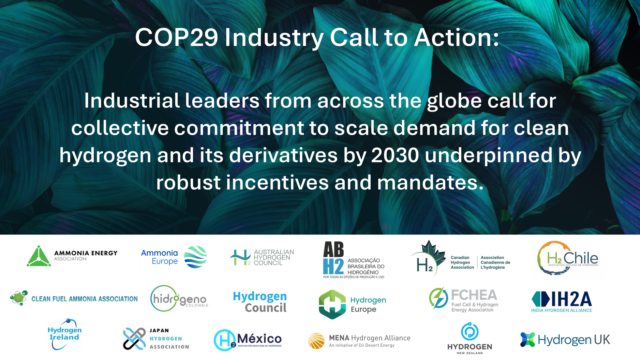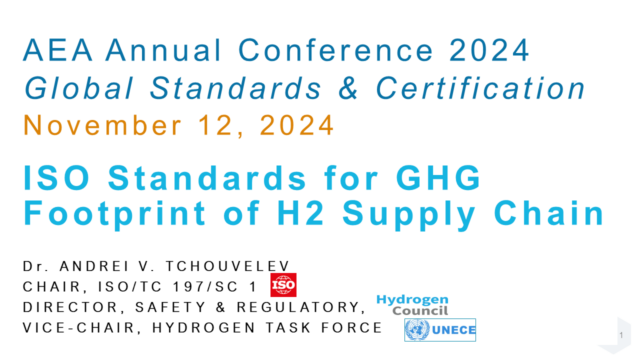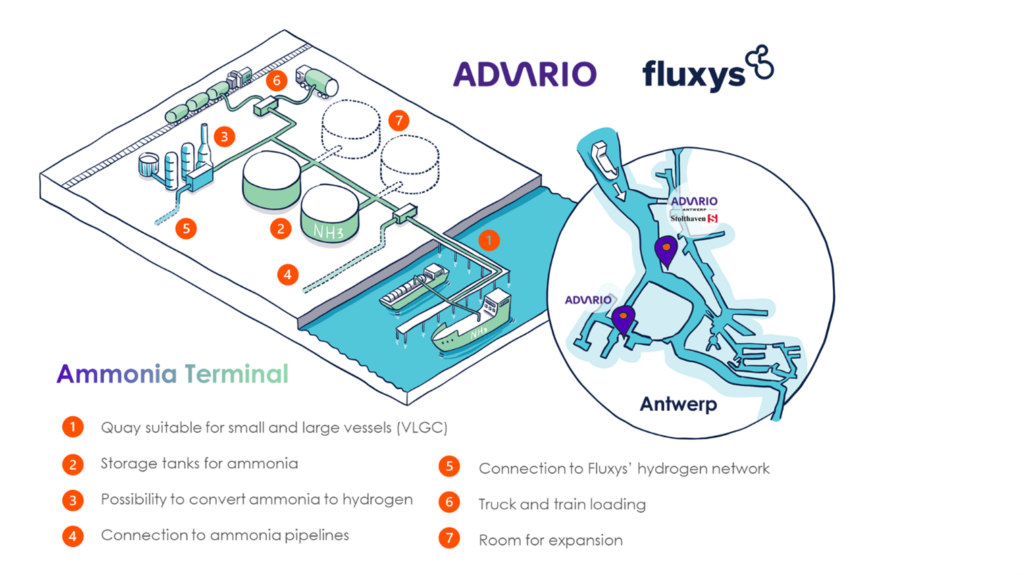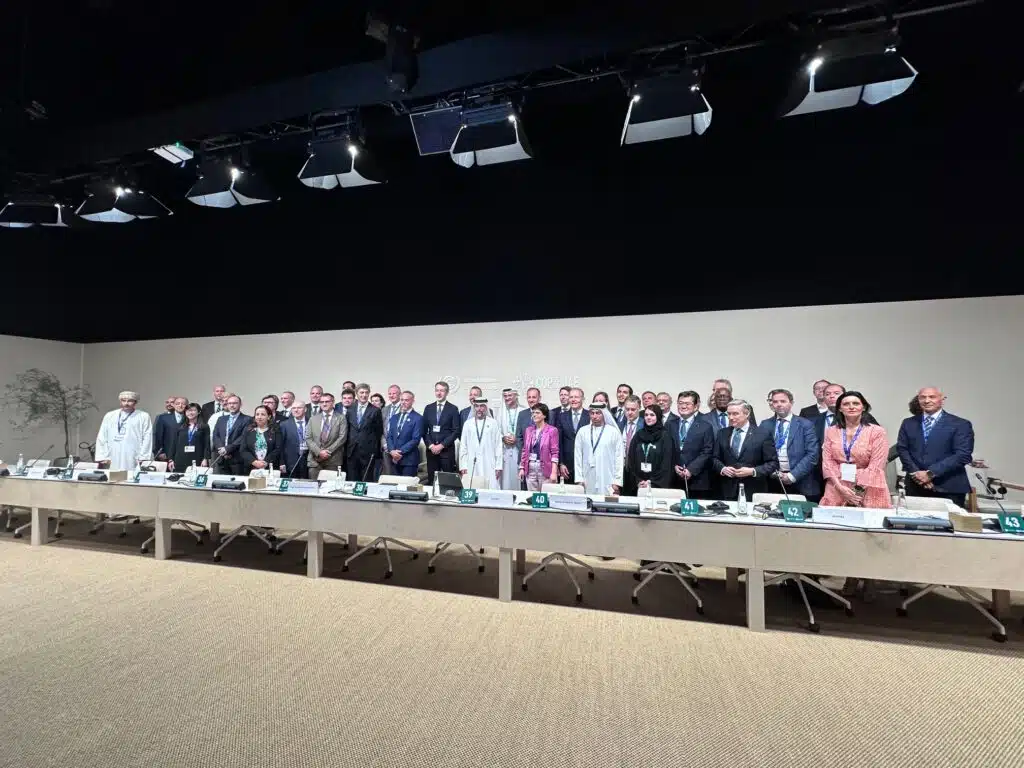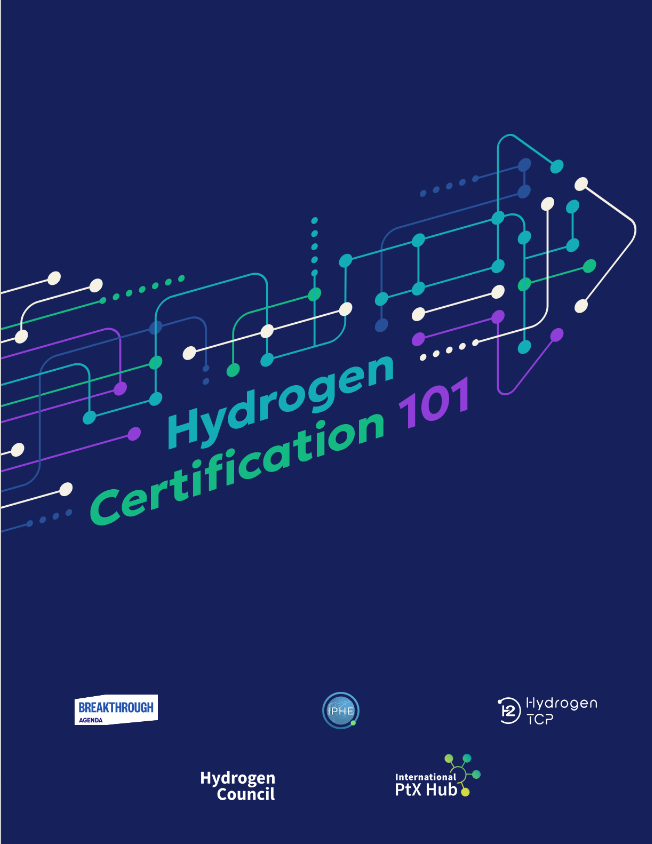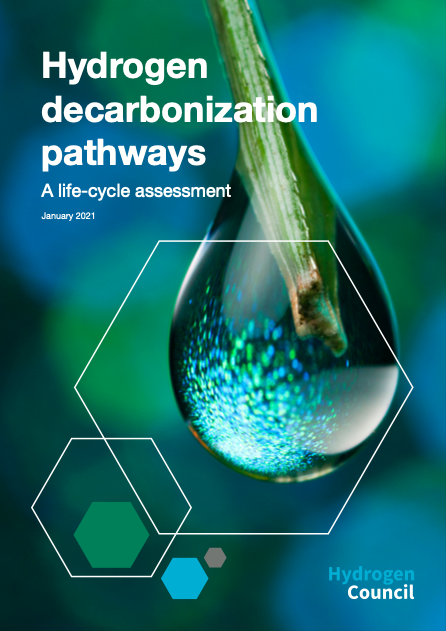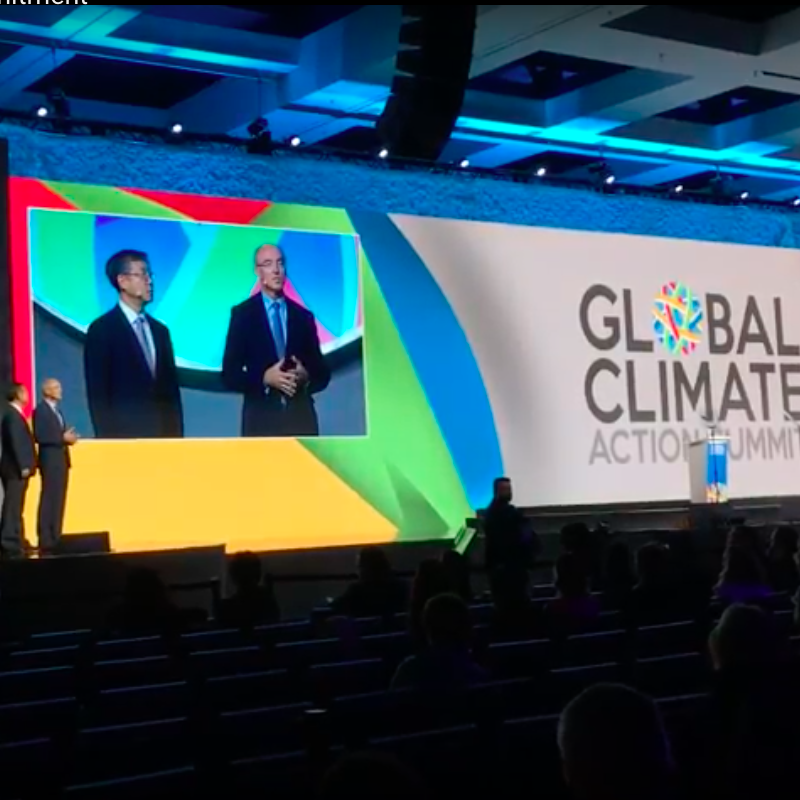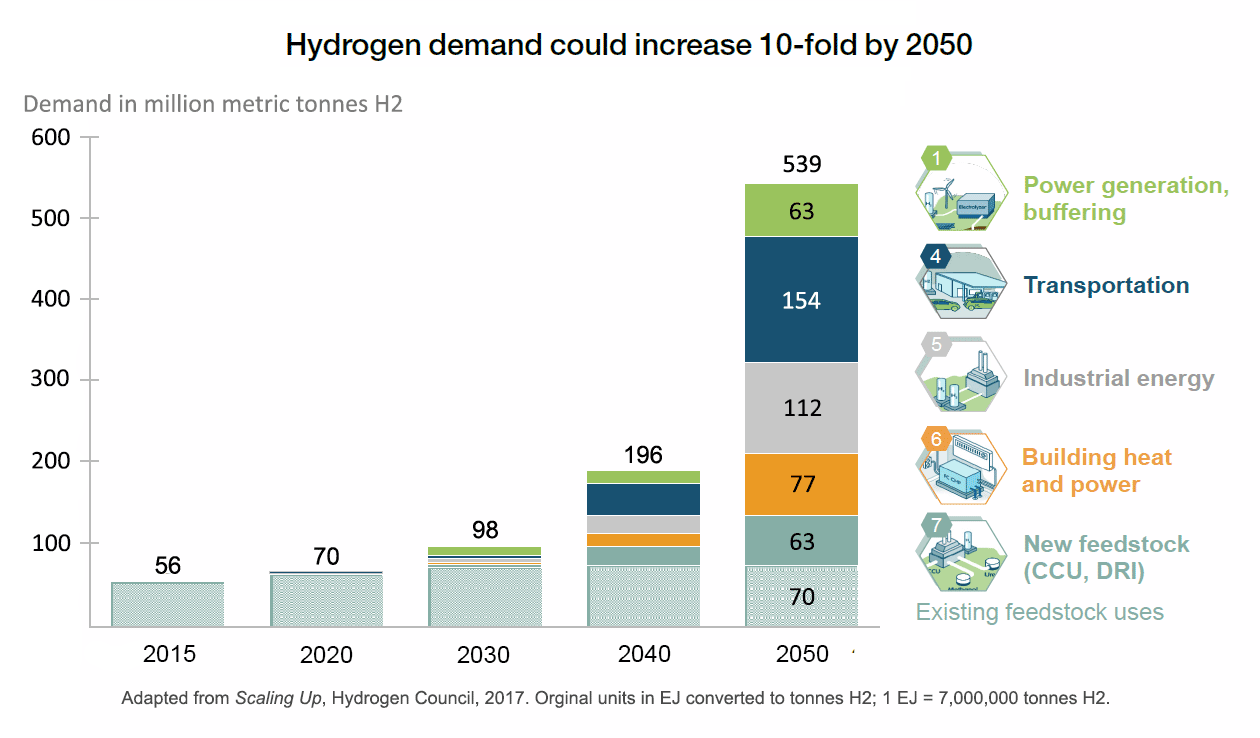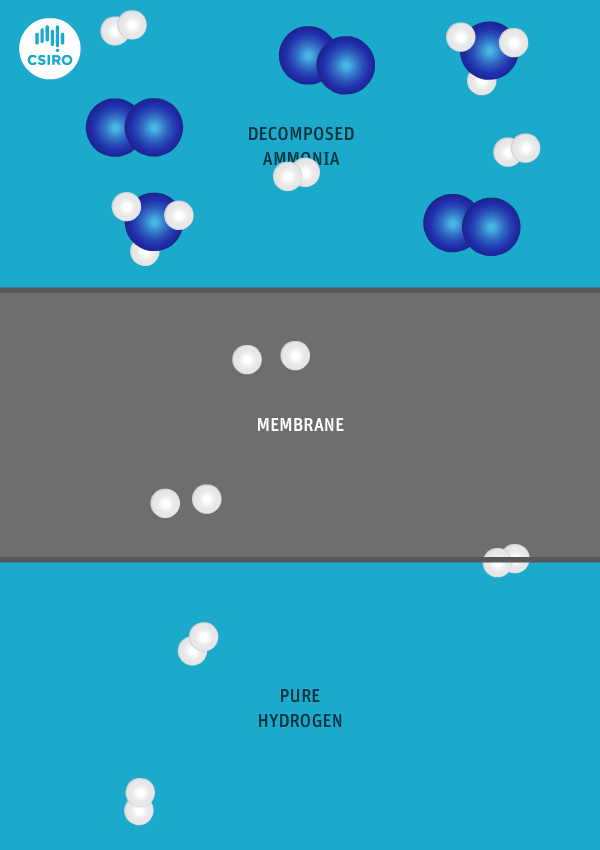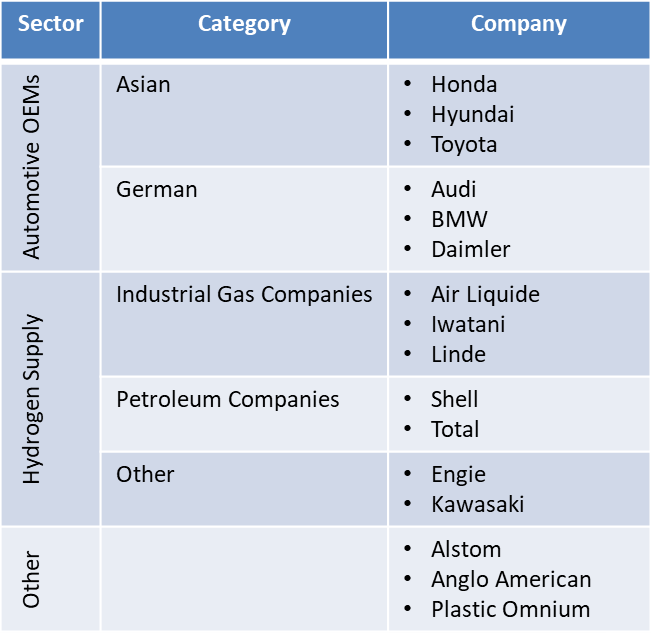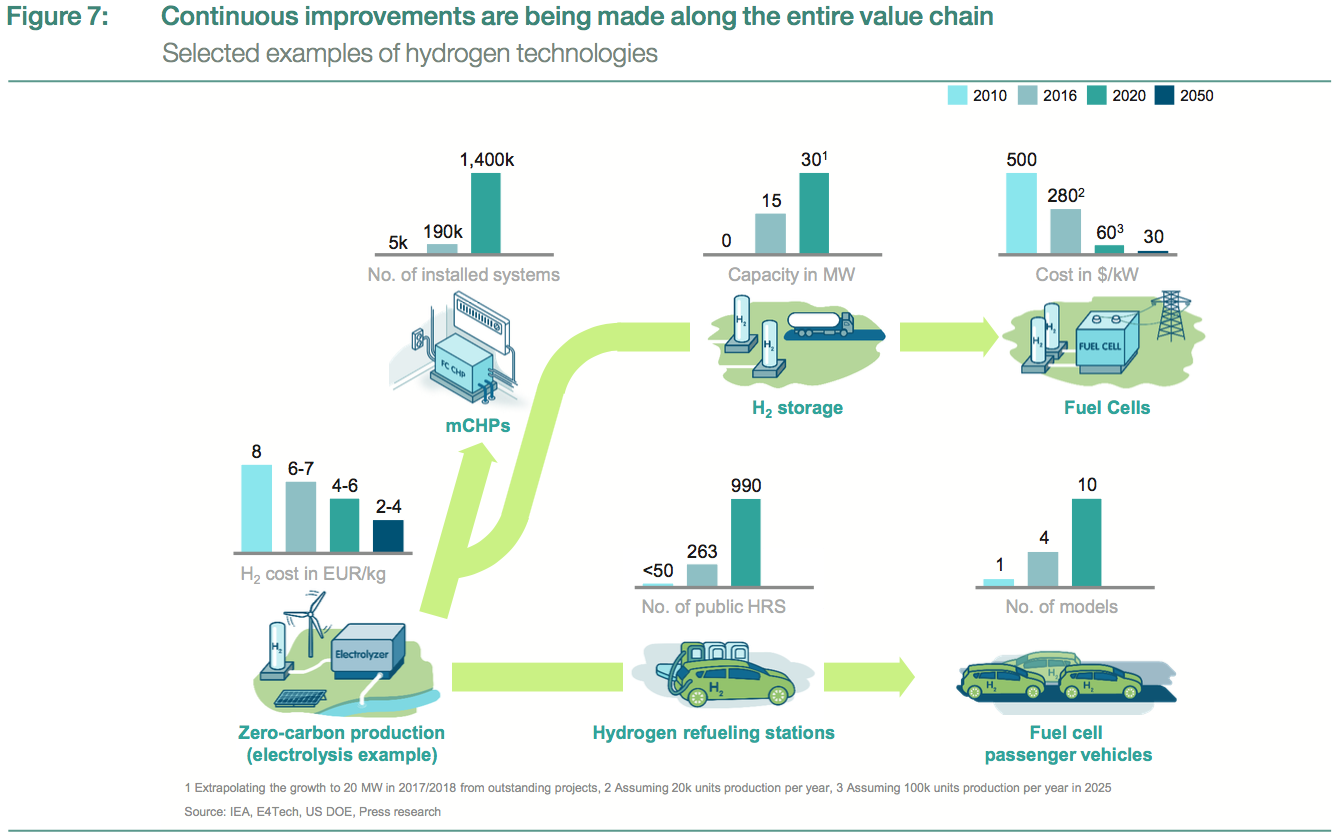The AEA and like minded organizations delivered two urgent calls to action at COP29. These documents outline practical actions needed from governments in the next one-to-two years to stimulate demand for clean hydrogen and ammonia. Now through 2025 and 2026, the AEA, its coalition partners, and all our industry members need to channel these messages into national and local policies to scale demand for clean molecules.
Content Related to Hydrogen Council
Article
Call to action: what governments must now do to support demand
Trevor BrownJulian Atchison November 28, 2024
Article
Advario: new ammonia import capacity in Belgium
Julian Atchison February 22, 2024
Along with project partner Fluxys, Advario is studying the feasibility of developing an open-access ammonia import terminal at the Port of Antwerp-Bruges, with operations to begin in 2027. On a recent tour of Advario facilities in Belgium, Hydrogen Council representatives noted an “impressive” approach to safety in ammonia transition plans.
Article
COP28 Debrief: Flagship Hydrogen Initiatives Launched
Oscar Pearce December 18, 2023
A series of flagship hydrogen initiatives were launched at COP28 last month. The initiatives are headlined by a 37-country joint declaration on mutual recognition of certification schemes, a response to sustained calls for increased global regulatory consistency. Additionally, the new ISO methodology for calculating hydrogen emissions was unveiled, paving the way for harmonisation.
Article
Certification 101: New Hydrogen Council Report
Oscar Pearce August 29, 2023
Hydrogen Certification 101, the Hydrogen Council’s new report, provides a helpful summary of key certification terminology and concepts. It is the latest report to advocate for mutual recognition as a solution to inconsistency in energy policy, while also delving into practical measures to support the fundamental design principles of certification schemes.
Article
Hydrogen Council publishes Life-Cycle Analysis of Decarbonization Pathways
Trevor Brown February 04, 2021
The Hydrogen Council has published a valuable report with a rigorous life-cycle assessment (LCA) of greenhouse gas emissions from various hydrogen applications. It illustrates the report with eight specific examples, two of which focus on ammonia. With green hydrogen as an input to ammonia used in fertilizer production, we could deliver a 96% reduction in emissions. With blue hydrogen exported and combusted as ammonia for electric power generation, we could deliver an 84% reduction in emissions. As the report states at the start: “Life-cycle emissions are coming into focus with scaling-up of hydrogen … To deliver on the sustainability promise, it is … not only important to make it economically viable, but also maximize its decarbonization potential.”
Article
Hydrogen Council Releases Landmark Report
Stephen H. Crolius January 23, 2020
The Hydrogen Council this week released Path to hydrogen competitiveness: A cost perspective. The report carries some big news. Low-carbon hydrogen can become much more cost-competitive, much more quickly, than is generally appreciated.
Article
Targets, Limits, Pledges, Bans: Enforcing the Transition to Sustainable Energy
Trevor Brown October 18, 2018
In the last 12 months ... California passed a law mandating 100% carbon-free electricity by 2045; then its governor announced that the state's entire energy system - not just its electricity - would be carbon-neutral by 2045. The Hydrogen Council announced its "goal of decarbonizing 100% of hydrogen fuel used in transport by 2030." The International Maritime Organization set targets for the global shipping sector to “reduce the total annual GHG emissions by at least 50% by 2050,” and completely “phase them out, as soon as possible in this century,” and these targets were swiftly endorsed by the International Chamber of Shipping. Regulators and self-regulating organizations around the world are enforcing systemic decarbonization and accelerating the transition to a hydrogen economy.
Article
This Week in Hydrogen
David White September 27, 2018
September 10–14 gave us five remarkable events both evidencing and advancing the rise of hydrogen in transportation and energy. Any one of them would have made it a significant week; together they make a sea change.
Article
Progress toward Ammonia-to-Hydrogen Conversion at H2 Fueling Stations
Stephen H. Crolius October 05, 2017
In the last 12 months ... Groups in Australia, Japan, Denmark, the U.K., and the U.S. all made progress with technologies that can be used to convert ammonia to hydrogen at fueling stations. This means that hydrogen for fuel cell vehicles can be handled as ammonia from the point of production to the point of dispensing.
Article
BOC/Linde Embraces Ammonia-Based Hydrogen Fueling Technology
Stephen H. Crolius September 07, 2017
Dateline Sydney, August 22, 2017. Industrial gas vendor Linde Group (under its BOC brand) confirms its participation in a previously announced Australian ammonia-energy project. With the Commonwealth Scientific and Industrial Research Organization (CSIRO) in the lead, the project partners will build and operate a pilot-scale “ammonia-to-hydrogen cracking” facility that showcases CSIRO’s hydrogen purification membrane technology. BOC/Linde will contribute goods and services valued at AUD$100,000 (USD$80,000) to the AUD$3.4 million project.
Article
Hydrogen Council - new global initiative launched at Davos
Trevor Brown January 20, 2017
This week, at the World Economic Forum in Davos, the leaders of 13 global companies, representing more than EUR 1 trillion in annual revenues, announced the launch of the Hydrogen Council. This new global initiative is important for obvious reasons: it presents a compelling "united vision and long-term ambition" for hydrogen, it promises global engagement with "key stakeholders such as policy makers, business and hydrogen players, international agencies and civil society," and it pledges financial commitments to RD&D totaling EUR 10 billion over the next five years. It is important for a subtler reason too: it is the first hydrogen industry promotion I've seen that includes ammonia. It includes ammonia both implicitly, encompassing "hydrogen and its compounds," and explicitly, listing ammonia as a "renewable fuel" in its own right.
